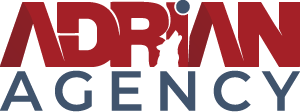
Facebook Vs. Google
Facebook Ads or Google Ads — which is right for your business? That’s what we’re going to talk about today.
Facebook and Google are two totally different platforms. They have a lot of the same features, and the way you build out your campaigns on these platforms is very similar. But overall, the type of clients and the intent of the visitors are very different.
So today, we’re going to talk about Google Ads versus Facebook Ads. So without further ado, let’s go ahead and roll into it.
What’s the difference?
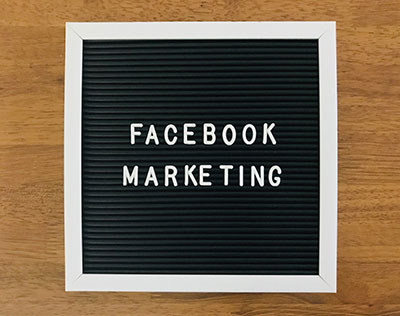
So let’s just go ahead and jump right into it! Google Ads and Facebook Ads — what’s the difference?
The easiest way I can summarize the difference between the two platforms is that Google is about demand fulfillment, while Facebook is about demand creation. Of course, there are always exceptions to every rule, but that’s the general rule I follow when I’m building out Google Ads or Facebook Ads.
I always want to understand what the intent of my client is. If I have an innovative product that I’m trying to get out to the marketplace, and there aren’t a lot of people who know about this product yet, then there’s no demand for it.
In that case, I would go with Facebook to advertise that product. Whether it’s a heated neck massage, or whatever it is, I’m going to put that product on Facebook because I need to create the demand. I need to expose the market to what this product is, because they probably are not searching for it.
1. Demand fulfillment vs. demand creation
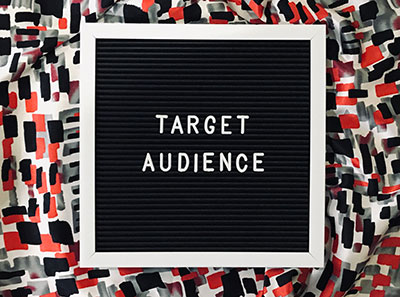
When you put those keywords into your Google search, it’s going to give you an ad. Not just one ad, actually, but three ads. And below that, you’re going to see Google Maps, which will also have ads. Below that is your organic listings, and then typically at the bottom of the page, again, is three more ads.
In that scenario, your intent is very high. You need somebody to come clean your carpets quickly. You want it done today, or at least within a week.
Now with Facebook, even if you have a carpet cleaning ad, it might pop up on someone’s timeline when it’s convenient for them. You might have some sort of special deal or irresistable offer, and that’s why they decided to call you — but they weren’t actively searching for that specific service that you’re offering at the time they saw your ad.
So, that’s the main, fundamental difference that I want you to understand between Facebook and Google. It’s about demand fulfillment versus demand creation.
Demand creation is very important, especially with a product that nobody knows about or is searching for, like courses and other services. You want to create the demand for your service, and Facebook is a really great place for that.
On the other hand, if you have an auto repair business, or you’re a carpet cleaner, or you’re a roofing or an insurance agent — people are looking for your service, and you want to focus on fulfilling that demand.
2. Targeting Options

Google has less targeting options, in terms of how you can target a customer’s personality and behaviors. Facebook, on the other hand, allows you to target by 97 different data points: if they have a job, if they have kids, what Facebook groups they like, what there hobbies are, etc. It gives you a lot of targeting options, which is nice.
With Google, you can make some distinctions, like age, demographics, and income, but you don’t have as much control. What you’re really targeting is the behavior and the intent of the user.
So, you’re looking for somebody who’s looking for a local carpet cleaner, somebody who’as looking for a residential roofer near them. Those are the specific keywords that you’re going to use.
3. Partner networks
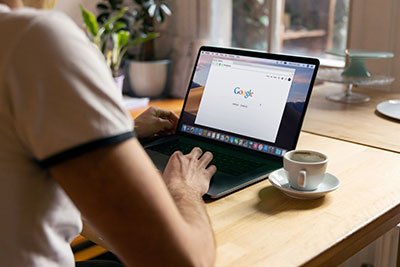
Facebook does have a similar feature. They have an “audience network,” and they also own Instagram, as well as some other companies. So, you can get ads on their other platforms, but Google has a much broader range of websites and can saturate more of the marketplace for you. I like Google for that reason. However, it is more expensive. I’ve done the numbers.
Let’s just use this as an example: If you have a roofing company and you want to run Google ads, it’s going to cost you between $200 and $300, depending on where you are in the country, to generate a qualified lead. And what I mean by ‘lead’ is a phone call, a form entry, or some sort of contact inquiry from that business.
With Facebook, I can actually generate that same lead, without the high intent, for about $30 to $50. Even though the quality isn’t quite as high, because the intent isn’t as high, it’s a lot cheaper to bring in a high volume of leads.
4. Quality of leads
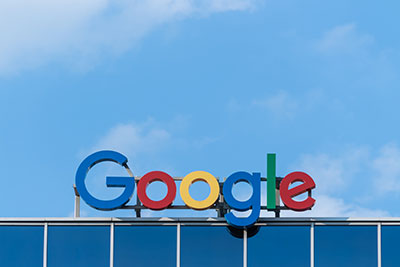
A lot of people, especially your competitors, are not answering their phones. Trust me. Probably 60%-70% of people don’t answer their phones when a lead comes in. So as long as you answer your phone calls and you answer them professionally, you’re going to have a very high chance of getting that customer.
With Facebook, people are browsing around and shopping. You may catch their attention with an image or video ad and get them to submit their information, but their intent isn’t as high. If you don’t follow up with that lead in the next 5-30 minutes, your chances of converting that lead into a deal are slim to none.
5. Building relationships

So, your availability is a factor. If you just want incoming phone calls, Google is probably the way to go. You’re going to need to have a system to make sure that you always answer those calls, and then you can put them into a database and nurture those relationships over time.
Remember, what you’re paying for — on top of the ads, forms, live chats, etc. — is the database of information of potential clients. If you can build that database, you’re building value. With Facebook, it’s the same way: you can build up a Facebook database and start emailing people to build those relationships over a period of time.
Pick the platform that’s right for you
So, I hope that helps explain it. I know that’s a lot of information, but I really wanted to make sure you guys understand the differences between Google Ads and Facebook Ads. Remember: demand fulfillment; demand creation.
If you’re on a smaller budget, it’s probably better for you to use Facebook Ads. Keep in mind, Facebook boosting is another option that a lot of people have used, but the targeting is a little more limited. On the Facebook Ads platform, you have 97 different targeting options. But when you’re boosting a post, your options are much more limited. So, you really aren’t utilizing the full capability and optimization of Facebook Ads just by boosting posts.
Do you want to get started with Facebook Ads? You can go to business.facebook.com. Start there, and make sure that your campaigns are very specific. That’s important on Google and Facebook: break your campaigns into specific services. If you’re a general contractor, create a specific campaign for “Roseville construction,” or, “Roseville roof repair,” or whatever it is that you do.
So, which is better, Google or Facebook? I want you to understand that they’re both great. They both have their value — you just have to understand when and where.
Thank you guys so much for tuning in. I hope you guys have a blessed day, and as always, keep looking up.
